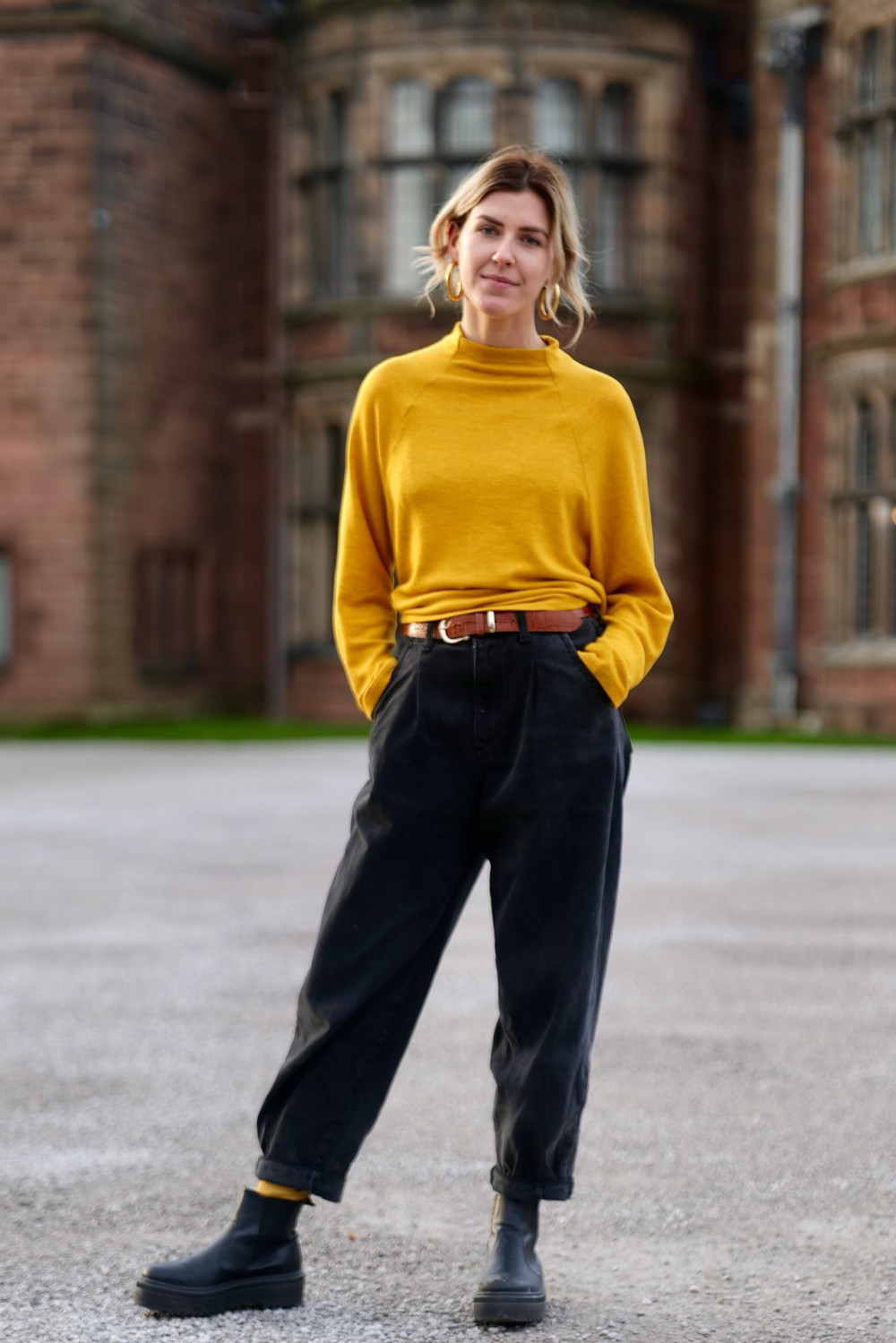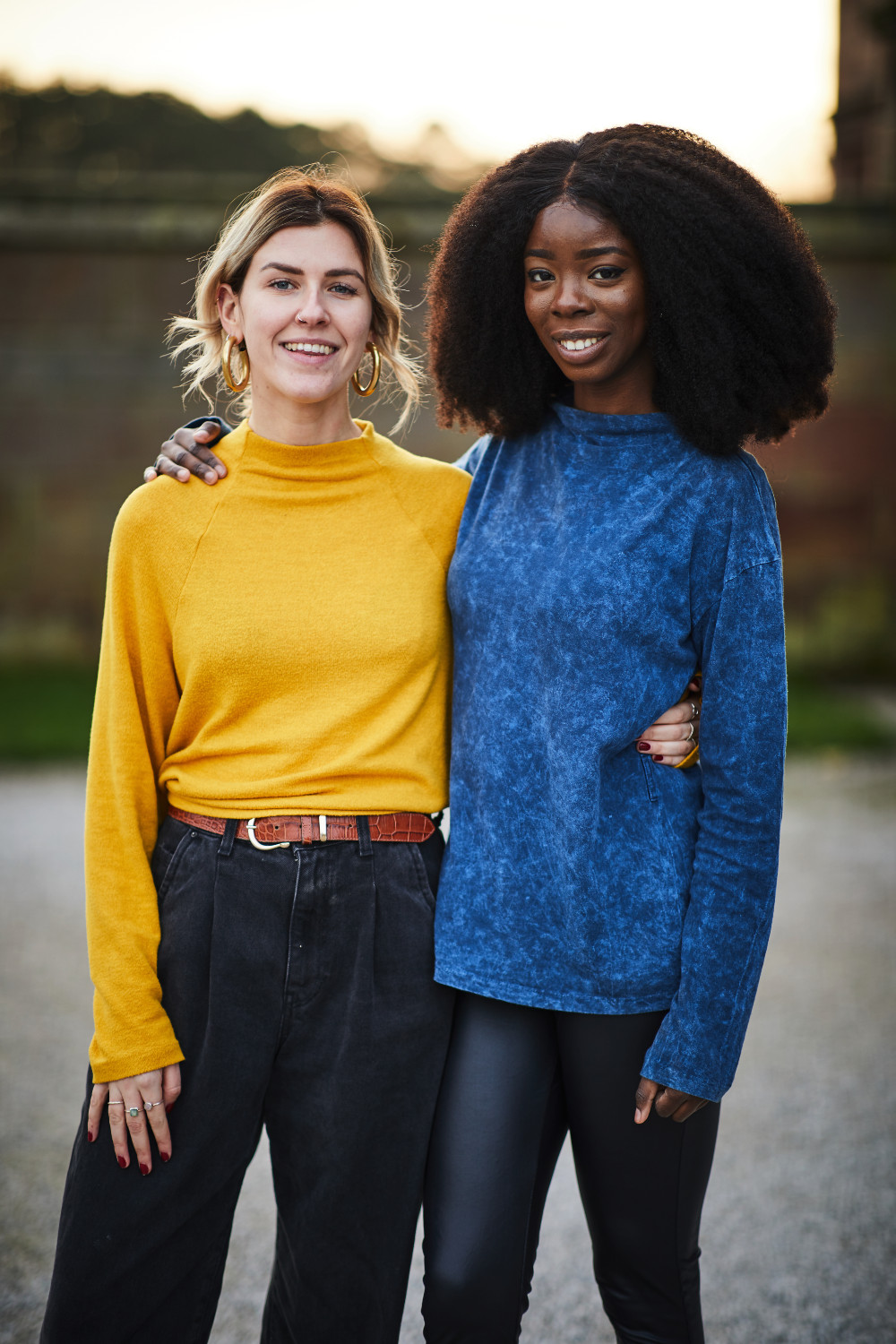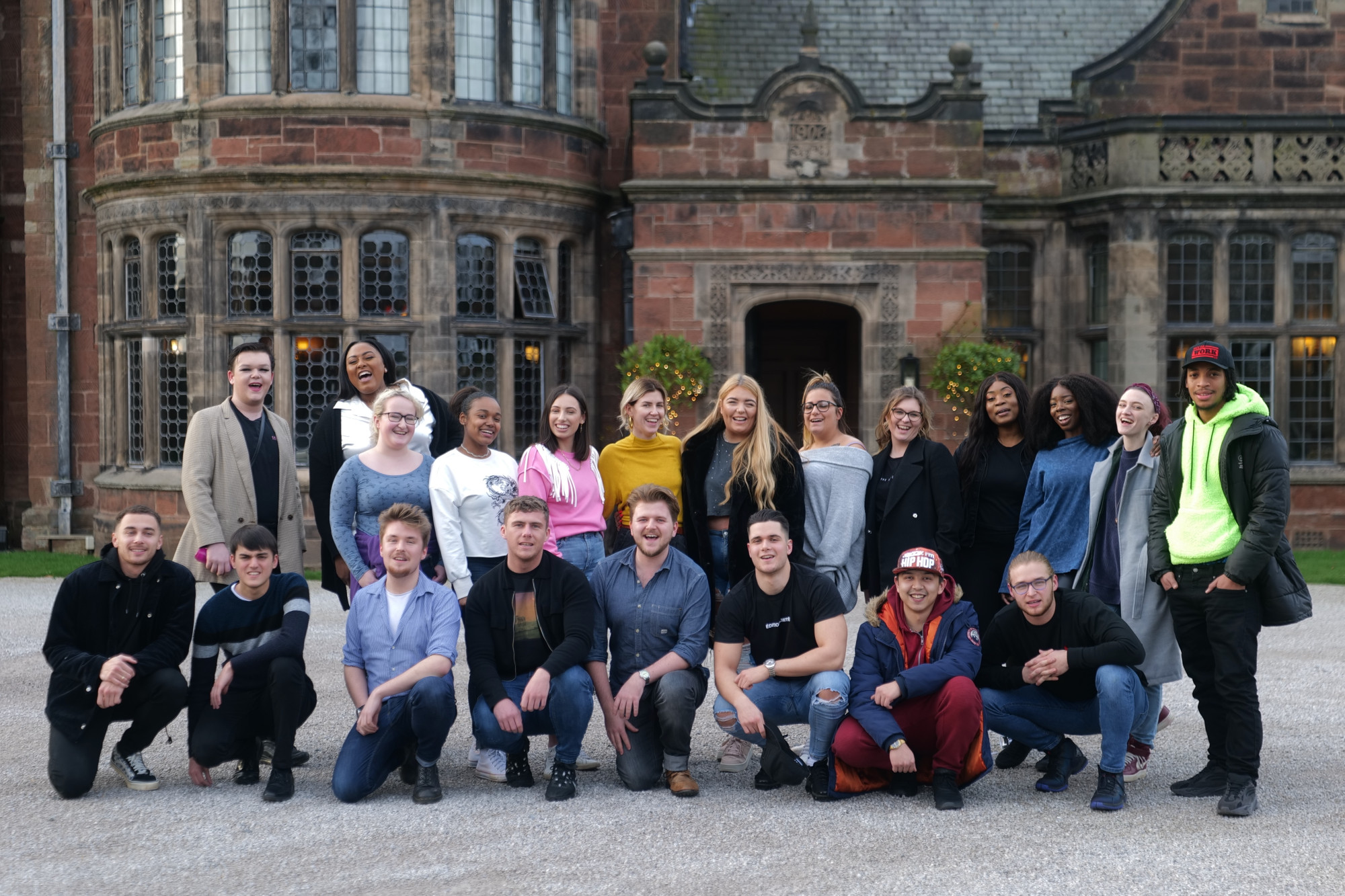Coercive control: how to spot the signs when love turns sinister
Have you seen Is This Coercive Control? If not, why not? It's the jawdropping BBC Three social experiment asking people if they know what constitutes coercive control. Journalist, filmmaker and presenter, Ellie Flynn, writes for the first time about making the show and what lessons we can learn about this misunderstood form of domestic abuse


Celebrity news, beauty, fashion advice, and fascinating features, delivered straight to your inbox!
You are now subscribed
Your newsletter sign-up was successful
Have you seen Is This Coercive Control? If not, why not? It's the jawdropping BBC Three social experiment asking people if they know what constitutes coercive control. Journalist, filmmaker and presenter, Ellie Flynn, writes for the first time about making the show and what lessons we can learn about this misunderstood form of domestic abuse
So how do you know when clingy and jealous becomes controlling and coercive? And when does that become a criminal offence? Those are some of the questions that Is This Coercive Control? tries to unpick.
How much do we really know about what behaviour is acceptable in our relationships? And are we able to recognise when what we thought was love turns out to be something more sinister? These are the questions I wanted answers to when I began working on my latest documentary for BBC Three, Is This Coercive Control?

Introduced as a criminal offence in England and Wales in 2015, coercive control is an act or pattern of acts of assault, threats, humiliation and intimidation or other abuse that is used to harm, punish or frighten their victim. It carries a maximum sentence of up to five years in prison - but as we learned making the film, many of us still don’t know what it actually is - or crucially, how to spot it.
To test what other young people know about coercive control, we took a group of 18-30 year olds and showed them a drama depicting a relationship between two people. The drama was shown in parts over two days, and at the end of each section the group were asked questions about what they thought they were witnessing. Its release has come at a crucial time.
Abusers using pandemic as a tool of fear
After the UK went into lockdown in March, there were a record number of calls to domestic abuse helplines - with a call made to the police every 30 seconds in the first seven weeks. Women’s Aid warned abusers are also using the pandemic as a tool for abuse to increase fear and anxiety, with more than 60% of survivors living with their abuser saying the abuse worsened between March and June of this year.

As we learned from the group watching the drama, coercive control can be difficult to spot. Abusers will gaslight and manipulate their victims into thinking they are to blame for any anger that is directed towards them, and offences can be subtle - especially to an outsider. Instances that could be written off as one-off bursts of anger, or the behaviour of a concerned or needy partner are in fact intentional acts of manipulation, designed to control and isolate their victims.
Celebrity news, beauty, fashion advice, and fascinating features, delivered straight to your inbox!
Unpicking toxic relationships
In the drama, we watched a relationship unfold between the two main characters, Alex and Rachael. While the group were largely able to distinguish the relationship was toxic, few thought the behaviour we were seeing, which included making Rachael change her appearance, move in after three months and Alex smashing a plate during an argument, was criminal. The results were surprising.
While I didn't expect everyone to know coercive control was illegal, I thought the group may have heard about it. I think it's really important young people are made aware of this more widely, so they know what to look out for and know they are protected by the law if they ever become a victim themselves. It's scary to think we are writing off domestic abuse as "bad behaviour" because there's not enough knowledge around the subject.

Coercive and controlling behaviour is so difficult to recognise because it's not something that happens overnight. People have a misconception that the abuser enters a relationship telling the victim exactly what they can and can't do. So many people question why the victim doesn't just leave at the start, saying things like "it's not like they're chained in the house, they could leave if they wanted to". Coercive behaviour often manifests over months or even years, and the perpetrator will very slowly start to take control of every element of their victim's life, from their social interactions, to their finances - and even down to what they wear or what they do.
Raising awareness
I hope this film will not only raise awareness that coercive control is a crime, but also help battle misconceptions about the impact emotional abuse can have and what it looks like. Controlling relationships may not always be obvious, and as we saw from some of the group’s suggestions that Rachael was in fact the problematic member of the relationship for being “a drunk and a liar”, the abuse is not always evident.
To an outsider a controlling partner may appear doting and full of love, and a victim could be made to seem difficult or problematic by their abuser. It's important we realise victims and perpetrators come in many shapes and forms so we are able to look out for the signs of abuse and not be led by our preconceptions.
Coercive control - how to spot the signs
If something doesn't feel right in a relationship it probably isn't. Women's Aid identified some common examples of coercive behaviour.
* Isolating you from friends and family * Depriving you of basic needs, such as food * Monitoring your time * Monitoring you via online communication tools or spyware * Making threats or intimidating you
* Is This Coercive Control? is available on iPlayer now
* Anyone can be a victim of domestic abuse, and it can take years for victims of coercive and controlling behaviour to realise they are being abused. If you or anyone you know needs support please contact Women's Aid, Respect UK or Refuge’s National Domestic Abuse Helpline is free to call: available 24/7 on 0808 2000 247
Maria Coole is a contributing editor on Marie Claire.
Hello Marie Claire readers – you have reached your daily destination. I really hope you’re enjoying our reads and I'm very interested to know what you shared, liked and didn’t like (gah, it happens) by emailing me at: maria.coole@freelance.ti-media.com
But if you fancy finding out who you’re venting to then let me tell you I’m the one on the team that remembers the Spice Girls the first time round. I confidently predicted they’d be a one-hit wonder in the pages of Bliss magazine where I was deputy editor through the second half of the 90s. Having soundly killed any career ambitions in music journalism I’ve managed to keep myself in glow-boosting moisturisers and theatre tickets with a centuries-spanning career in journalism.
Yes, predating t’internet, when 'I’ll fax you' was grunted down a phone with a cord attached to it; when Glastonbury was still accessible by casually going under or over a flimsy fence; when gatecrashing a Foo Fighters aftershow party was easy-peasy-lemon-squeezy and tapping Dave Grohl on the shoulder was... oh sorry I like to ramble.
Originally born and bred in that there Welsh seaside town kindly given a new lease of life by Gavin & Stacey, I started out as a junior writer for the Girl Guides and eventually earned enough Brownie points to move on and have a blast as deputy editor of Bliss, New Woman and editor of People newspaper magazine. I was on the launch team of Look in 2007 - where I stuck around as deputy editor and acting editor for almost ten years - shaping a magazine and website at the forefront of body positivity, mental wellbeing and empowering features. More recently, I’ve been Closer executive editor, assistant editor at the Financial Times’s How To Spend It (yes thanks, no probs with that life skill) and now I’m making my inner fangirl’s dream come true by working on this agenda-setting brand, the one that inspired me to become a journalist when Marie Claire launched back in 1988.
I’m a theatre addict, lover of Marvel franchises, most hard cheeses, all types of trees, half-price Itsu, cats, Dr Who, cherry tomatoes, Curly-Wurly, cats, blueberries, cats, boiled eggs, cats, maxi dresses, cats, Adidas shelltops, cats and their kittens. I’ve never knowingly operated any household white goods and once served Ripples as a main course. And finally, always remember what the late great Nora Ephron said, ‘Everything is copy.’
